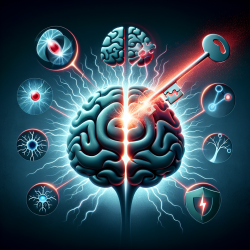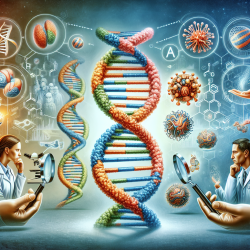Introduction
Alzheimer's disease (AD) continues to be a major health challenge, affecting millions worldwide. Recent research has highlighted the potential of combination therapies to offer enhanced protective effects against the disease's progression. A study titled A Combination Therapy of Urolithin A+EGCG Has Stronger Protective Effects than Single Drug Urolithin A in a Humanized Amyloid Beta Knockin Mice for Late-Onset Alzheimer’s Disease sheds light on the promising outcomes of combining Urolithin A with EGCG, a green tea extract.
Research Insights
The study conducted on humanized amyloid beta knockin (hAbKI) mice, which serve as a model for late-onset Alzheimer's disease, reveals that the combination of Urolithin A and EGCG significantly enhances mitochondrial function and reduces amyloid beta levels more effectively than Urolithin A alone. The findings suggest that this combination therapy could be a potent strategy to mitigate the toxicities induced by amyloid beta peptides, which are a hallmark of Alzheimer's pathology.
Key Findings
- Enhanced Mitochondrial Health: The combination therapy improved mitochondrial respiration, reduced mitochondrial fragmentation, and increased mitochondrial length, indicating better mitochondrial health.
- Improved Cognitive Function: Behavioral tests demonstrated that mice treated with the combination therapy showed improved motor coordination, spatial learning, and memory.
- Increased Mitophagy: The therapy enhanced the clearance of damaged mitochondria, a process known as mitophagy, which is crucial for maintaining cellular health.
- Reduction in Amyloid Beta Levels: Levels of amyloid beta 40 and 42 were significantly reduced, highlighting the therapy's potential in addressing one of the core pathological features of Alzheimer's disease.
Implications for Practitioners
For practitioners, these findings underscore the importance of considering combination therapies in the treatment of Alzheimer's disease. The enhanced effects observed with the combination of Urolithin A and EGCG suggest that integrating such approaches could lead to better patient outcomes. It also highlights the need for further research to explore similar synergistic therapies that can target multiple pathways involved in Alzheimer's pathology.
Encouraging Further Research
This study opens the door for more in-depth investigations into the mechanisms by which combination therapies exert their protective effects. Researchers are encouraged to explore other potential combinations that could offer even greater benefits. Additionally, clinical trials in humans will be essential to validate these findings and translate them into effective treatments for Alzheimer's patients.
To read the original research paper, please follow this link: A Combination Therapy of Urolithin A+EGCG Has Stronger Protective Effects than Single Drug Urolithin A in a Humanized Amyloid Beta Knockin Mice for Late-Onset Alzheimer’s Disease.










